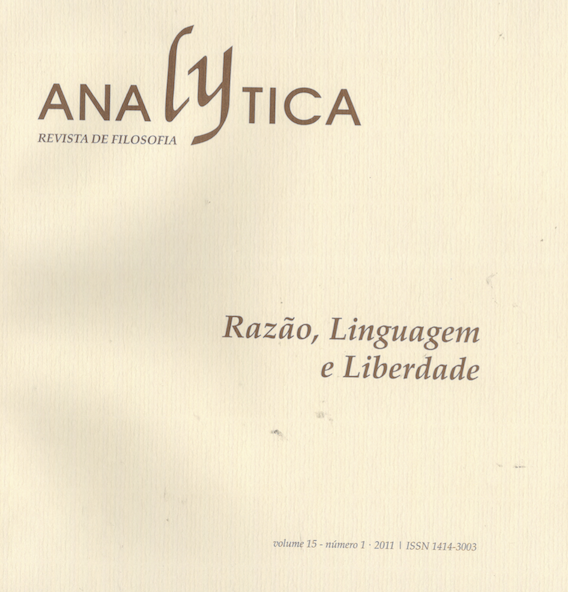Infinitude da Vontade nos Homens e em Deus segundo Descartes
Resumo
Neste artigo examino a definição de liberdade ou infinitude da vontade no homem e em Deus a partir da tese cartesiana segundo a qual é a infinitude da vontade que torna a vontade humana similar à vontade divina. A hipótese defendida é a de que, segundo Descartes, a infinitude da vontade de Deus e do homem consiste não no poder de escolha entre dois opostos, mas sim no fato de que tanto no homem quanto em Deus a vontade age sem coerção e, por sua própria natureza, infalível e exclusivamente em direção à verdade. Em outras palavras, defenderei que, segundo Descartes, o que é comum aos seres inteligentes (Deus e homens) é que a vontade não é determinada por uma força externa, embora por ser estruturalmente ligada à verdade, a vontade sempre aja em direção à verdade.
Abstract:
In this article I deal with the definition of freedom or the infinity of the will in man and in God from the Cartesian view according to which it is the infinity of the will that makes man's will similar to God's will. The hypothesis to be defended is that the infinity of the will of God and of man consist not in the power of choice between opposites, but rather in the fact that in both man and God the will acts without coercion, and by its very nature, infallibly and exclusively towards truth. In other words, I will argue that, according to Descartes, what is common to the intelligible beings (God and men) is that their will is not determined by any external force, although due to its being structurally bounded to truth, it always acts towards the truth.
Downloads
Publicado
Edição
Seção
Licença
Os autores que publicam nesta revista concordam com os seguintes termos:
- Os autores mantêm os direitos autorais e concedem à revista o direito de primeira publicação, com o trabalho simultaneamente licenciado sob a Licença Creative Commons Atribuição-SemDerivações 4.0 Internacional (CC BY-ND 4.0), que permite a redistribuição, comercial ou não comercial, desde que a obra original não seja modificada e que seja atribuído o crédito ao autor.
- Os autores têm autorização para assumir contratos adicionais separadamente para distribuição não-exclusiva da versão do trabalho publicada nesta revista (ex.: publicar em repositório institucional ou como capítulo de livro), com reconhecimento de autoria e publicação inicial nesta revista.
- Os autores têm permissão e são estimulados a publicar e distribuir seu trabalho online (ex.: em repositórios institucionais ou na sua página pessoal) a qualquer ponto antes ou durante o processo editorial, já que isso pode gerar alterações produtivas, bem como aumentar o impacto e a citação do trabalho publicado (Veja O Efeito do Acesso Livre).


